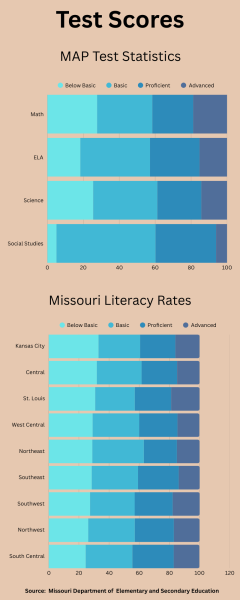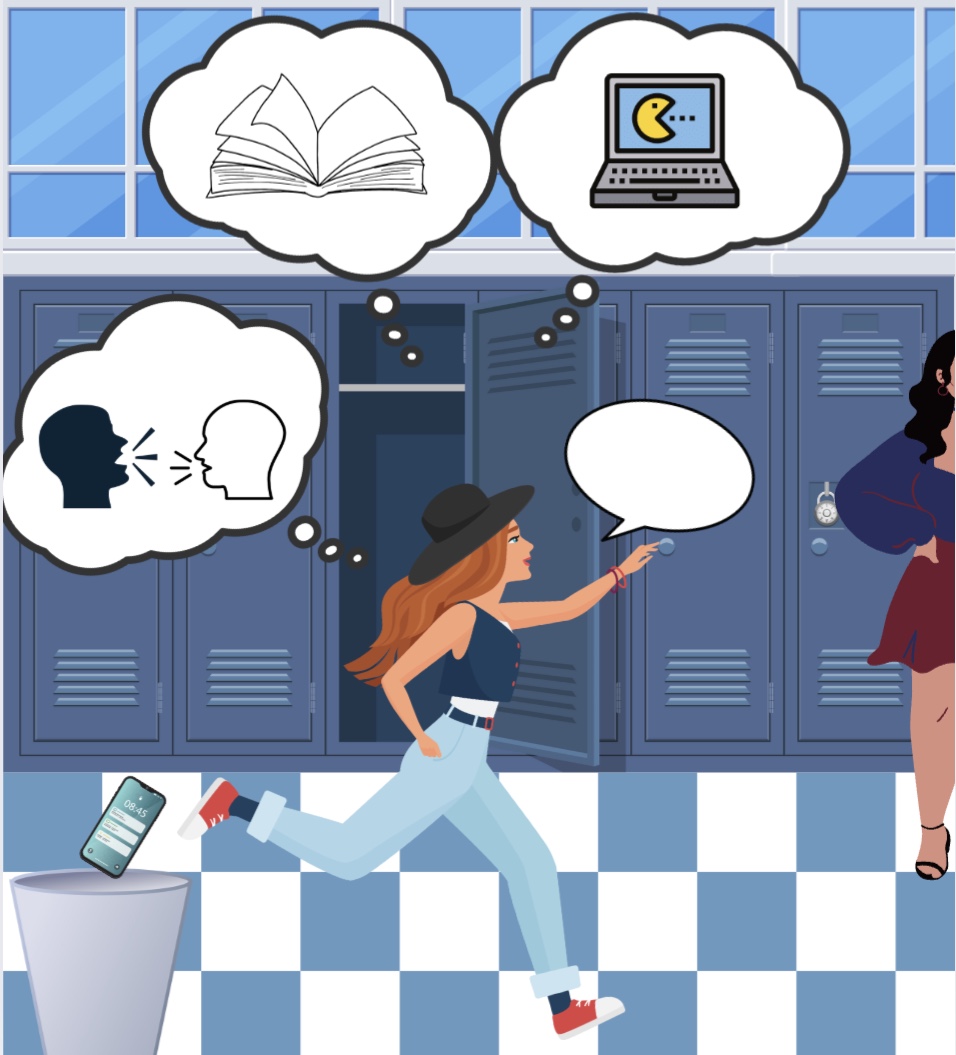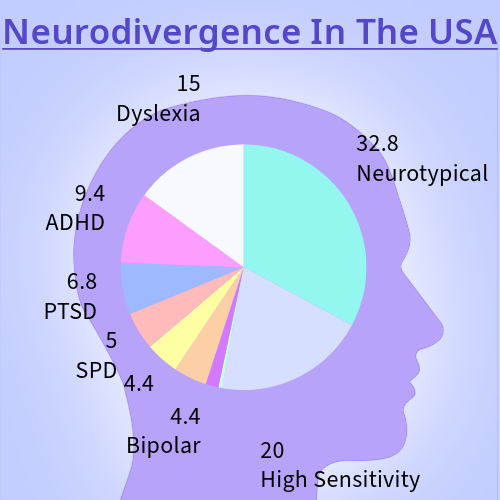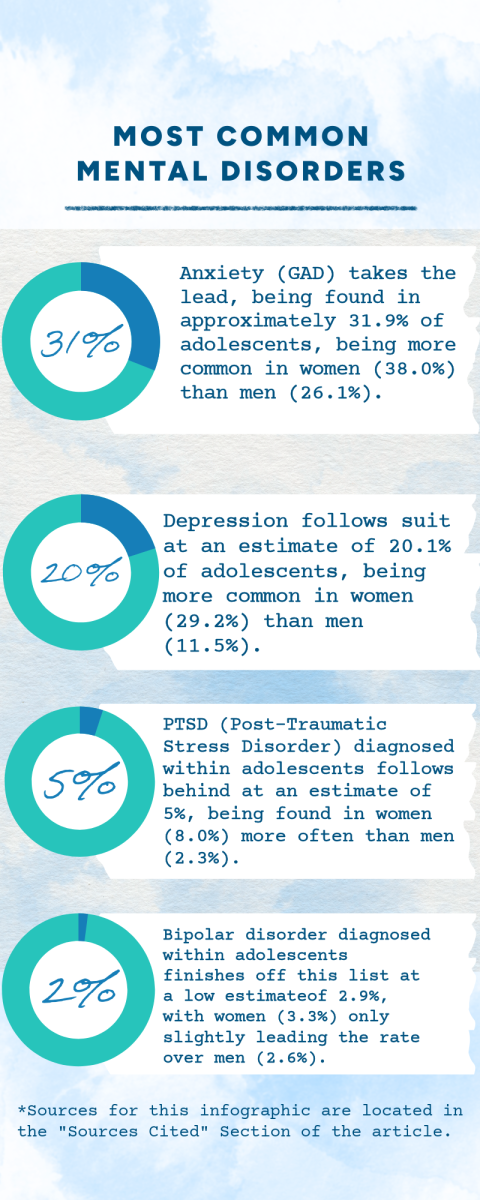Many students these days are unenthusiastic about having to attend classes, like math, preferring infinite free time to sitting through a lecture. The common thought is usually, “We don’t need this. We’ll never use this.”
However, there are some aspects of the core classes students take that we DO need, even though we may not realize it, or do not care for it.
 Why are core classes so important, and why should we care?
Why are core classes so important, and why should we care?
Actually, I’ll do you one better–why do we need school in the first place?
Well, socialization is a major reason, since you’ve likely met a lot of your friends through school. Another would be it helps you develop thinking skills, learn to form opinions, calculate expenses for work or in general, and most importantly to read and write. You form these skills through the four core classes, English, math, science, and history.
Throughout elementary school, you were likely subjected to MAP tests. These tests, and tests in general, exist to see how much of a class’s material you know. However, it is prevalent in the 2023-2024 data the Missouri Department of Elementary and Secondary Education recorded, that information taught in classes didn’t stick too well, since most students scored basic throughout all four core classes. And, to top it off, Missouri literacy rates aren’t any better, with the most common scores being basic and below basic.
This is–and should be considered as–worrying, as these scores not only reflect on a teacher’s ability to teach, but more importantly on student skills and comprehension. We need a good portion of what we learn in core classes in order to make it through life, and we especially need to be literate for just about everything in our lives, specifically when it comes to communicating with each other–which students typically do quite a lot, in and outside of school.
So, keep this in mind the next time you go to use ChatGPT or another AI bot to write your essay, or when you dismiss the importance of a class. They all shaped the skills you currently have, and without them, you would not be half the person you are right now.
Why Math?
By far, math is the class that most people often question the importance of. I’m sure you have also heard someone in your class, or in general, say, “When will we ever use any of this?”
Well, we use a portion of math everyday. Sure, it’s only PEMDAS, and not logarithms and exponents, but that doesn’t mean they go completely unused. You use math when counting your age, counting down the hours until you can leave school, counting how many there are of an item, and even calculating certain things in video games.
I won’t disagree with the fact that math does seem to lose some relevance after a few units, but that doesn’t mean you should disregard it completely. It may be more helpful than perceived.
Two math teachers shared their opinions on how relevant math is to student life:
Why do you think algebra and geometry, or math in general, is important?
Algebra I teacher Kyle Lawson: “Algebra helps set a foundation for high school math, and also helps with any higher level classes you may take.”
Geometry teacher Austin Patek: “It helps students find ways to problem-solve, and it’s generally useful for science, like engineering.”
Are there any examples of using algebra or geometry outside of school?
Lawson: “Probably. Like if you have a job, you have to know what hours and how long you work. And if you have a checking account, or if you get a raise, or you’re calculating how much you make annually, you have to or can use exponential functions to help figure that out.”
Patek: “It depends: you don’t necessarily use it every day, unless you’re going into specific fields, but if you’re trying to find a shortcut to get somewhere, that would be an example.”
How will these classes impact us in the future?
Lawson: “Positively, especially if you know and understand the information. It helps with logical and critical thinking, too.”
Patek: “It will have a bigger impact on your life down the line, specifically helping you figure out what would be best for you in the long run.”
Would it be beneficial or harmful to not take them?
Lawson: “Harmful. It’s always good to test yourself and take higher level classes, and attempt to understand more difficult topics, which helps you get out of your comfort zone.”
Patek: “Harmful, since it helps you learn how to problem solve via given procedures, and also helps you think outside the box.”
Why English?
Unlike math, not many students take issue with an English class, with the exceptions being having to present a project and write essays.
However, English is still relevant, our literacy has been built through these classes, which we’ve taken all our lives. Yes, it can be difficult to follow along with some given topics, but it would be easier to type out words that vaguely connect than use an AI to do work for you, and I guarantee your teacher would rather get a half-done assignment over an assignment composed entirely by AI, with no human element.
Besides, this class helps with your ability to communicate, which we all do all the time. You can learn more from something physically in front of you, like a book, than something that is artificial and only mimicking the real-life experience.
Though, if you’re still insistent on using AI, you should pay more attention in your class; so you can ask the bot more detailed questions and copy/paste answers that aren’t as telling to your teachers.
Two ELA teachers prove this point:
Why do you think English or composition & literature in general is important?
Composition and literature teacher Callie Smothers: “It helps your writing show your thought complexity, which in turn helps you articulate your thinking, and helps your communication skills.”
English teacher Elizabeth Menne: “It articulates our thinking, helps structure how we organize our thoughts, and helps us work through big ideas.”
Does taking English positively impact student life?
Smothers: “Yes, however it’s useful regardless of how much you enjoy the class, since it helps improve how you think.”
Menne: “Yes. Students get exposed to a variety of new ideas, and literature helps them develop empathy to be able to connect to stories that they may read that have more heavy themes than positive ones. In general, literature will help them become more sensitive to another person’s emotion and point of view.”
How would these classes impact students down the line?
Smothers: “Students would become better when it comes to problem-solving, and they would be more informed, which is most beneficial and important if they’re seeking higher education.”
Menne: “It will affect right about every aspect: how they think, how they communicate, how they read, and how they write.”
Would it be beneficial or harmful to not take them?
Smothers: “Harmful, and it would be especially detrimental if this is the only literal class someone took, because there’s a lot of layers of meaning to it that are too important to not have.”
Menne: “It would be very harmful, actually, if no one took this class. The main factor would be students relying on ChatGPT less, but the most important factor is they wouldn’t struggle to communicate and think through unknown ideas.”
Why Science?
Science also has some significance, and is maybe even more important than English and math due to our bodies literally being the biggest example of science. There’s scientific explanations for why we breathe, how our differing body systems work, and such.
Science is separated into two major components: chemistry and biology. Arguably, biology is what we use more often, given we are a living, breathing example of it.
However, you can say that science isn’t as much of a necessity as English is, but with how many scientific studies we have that list out problems and solutions for diseases, disorders, genetic and biological issues, and animal behavior/biology, it still retains its usefulness.
A couple teachers who specialize in science prove this class’s relevancy:
Why is chemistry or biology important?
Biology teacher Sarah Moen: “To learn about the study of life, firstly. Having that information can help with fact-checking, since a lot of people spread misinformation about science online. You also learn about electronics, which is important since we use it almost all the time in our lives.”
Chemistry teacher Kristin Price, Ph.D.: “It helps us understand how our world and life work, specifically our bodies. It also helps with calculations, and critical thinking skills.”
Are there any examples of these classes outside of school?
Moen: “Yes. You experience it through music, which involves physics, you learn about it through how money is made, etc. Science is really used a lot.”
Price: “Yes, our bodies are made of chemical reactions, especially when considering what’s good and bad for us. You can use athletes as an example, and how they have to monitor their exercise and their diet.”
How will these classes impact us down the line?
Moen: “Well, it depends on what job you’re wanting to get, but it impacts how you think about your health, makes you think and learn about genetic stuff, like if a disease runs in your family. It helps you learn and prepare for a lot of future stuff.”
Price: “It’ll impact our decision making, and help us take more precautions when it comes to keeping ourselves safe.”
Would it be beneficial or harmful not to take these classes?
Moen: “I think it would be harmful, you’d be missing out on some pretty key topics, regarding your health, how our bodies function, and how our devices work.”
Price: “It would be harmful, since it requires our critical thinking skills, and it helps recover and expand on basic knowledge.”
Why History?
History is at the bottom of the list for a reason–in my opinion, it is a class that is just kind of there.
Technically, we don’t necessarily need to learn about world history, especially in places outside of where we live. But, this class does teach about our own history, which is something you shouldn’t ignore. Why? Because you have more knowledge when it comes to repetition in how our president or our government acts–you know, basic information on political stances or just politics in general.
This does fall under government history more than general history, but it can be applied to a variety of places where you definitely need to know the background stories of the people in charge of you and the communities around you.
To support this, DIT history and government teacher Bryan Edinger shares his thoughts:
Why do you think students should study History/Government?
“There’s been a lot of misinformation floating around lately, and a lot of them don’t have a stable reason as to why we should care, which causes a lot of speculation. This class would help enhance critical thinking, which would hopefully lead students away from any type of phishing.”
Does history knowledge get used outside of school?
“Yes, as it helps understand the culture and history of someone, and the place they come from. For government, it helps us make more informed decisions.”
How will these classes impact us down the line?
“It would encourage students to go out and vote for what they believe is right, and know that they have the ability to make a difference.”
Would it be beneficial or harmful not to take these classes?
“It would be harmful, since it can take years just to learn and understand general government information if they’re trying to learn it on their own.”
All the teachers collectively agreed it would be harmful to not take their particular class, and especially agreed these classes help hone your critical thinking skills. So, while core classes may not seem like much of a big deal, they actually are.
They help you develop the ability to think, to add and subtract your money, what is safe to use and what isn’t, and to search to fact-check/check background information. Without these classes, we may not have gotten as far in life as we have and will.












